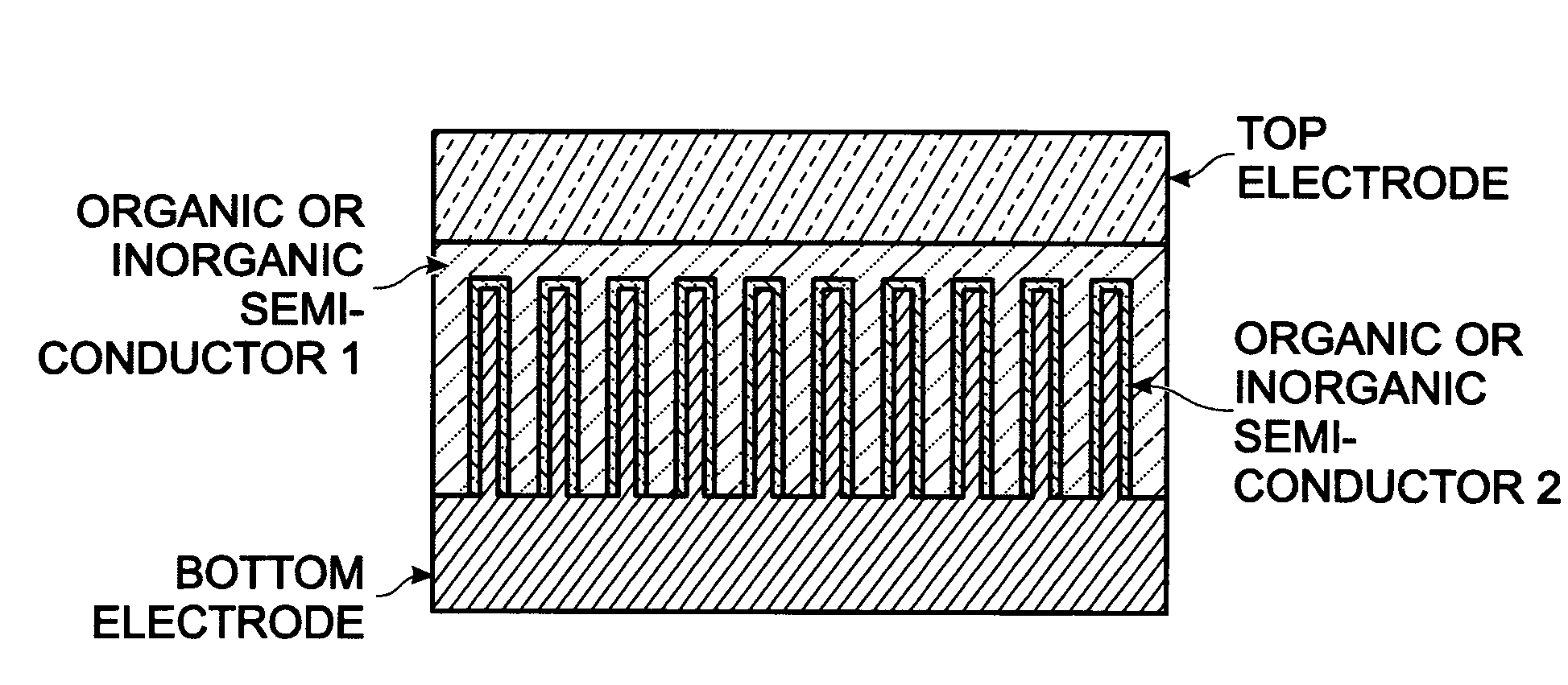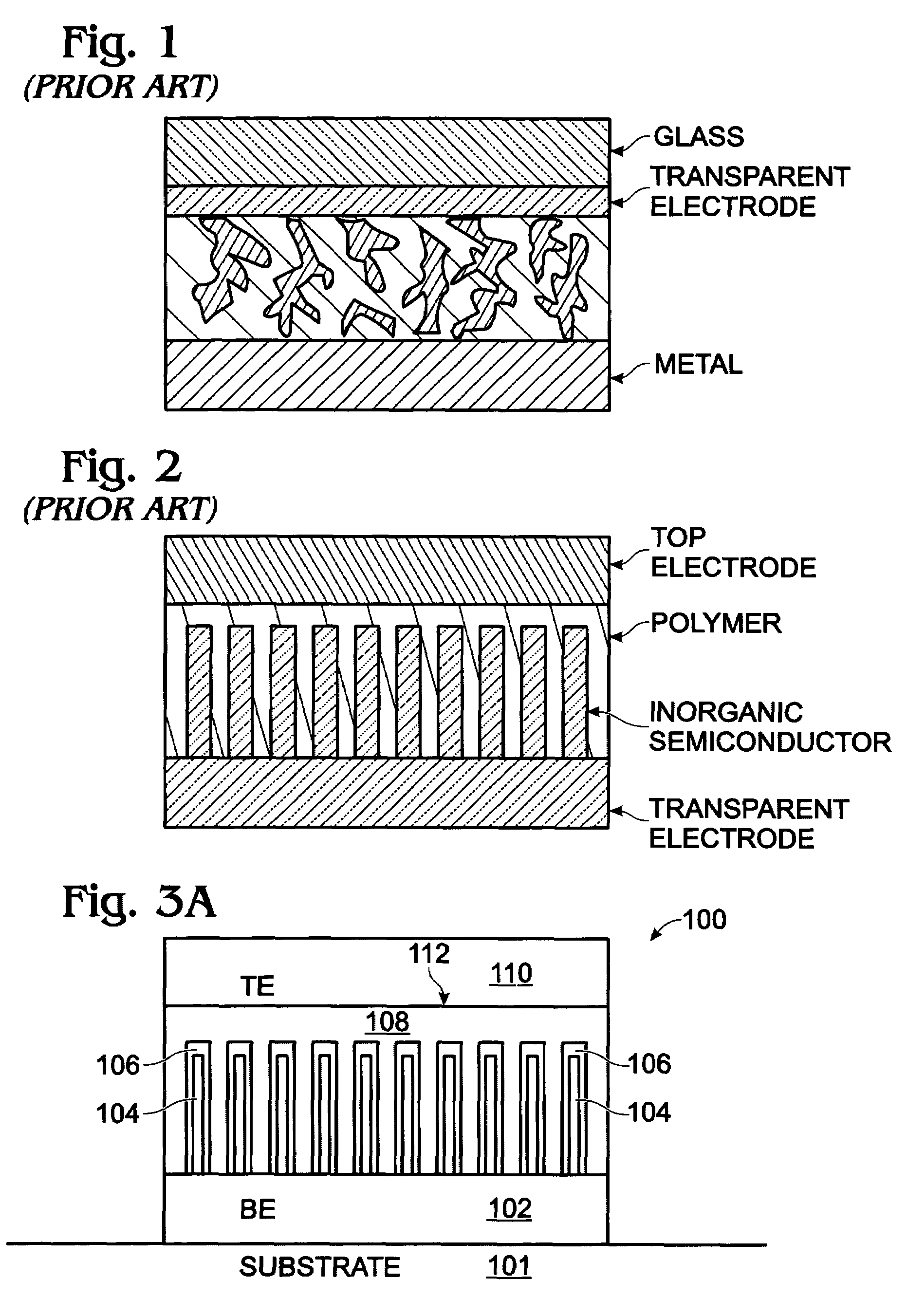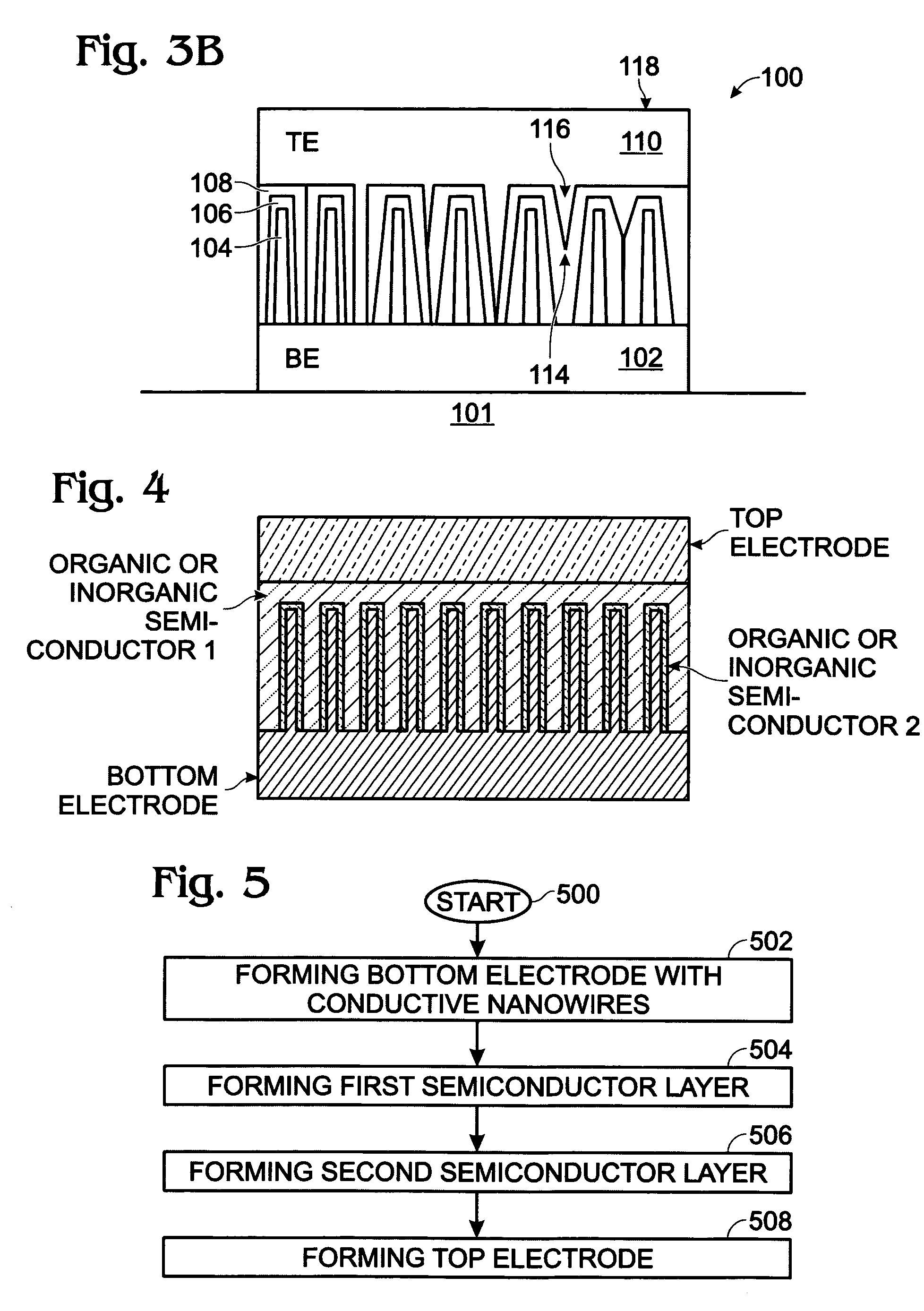Photovoltaic structure with a conductive nanowire array electrode
a photovoltaic structure and array electrode technology, applied in nanoinformatics, pv power plants, solid-state devices, etc., can solve the problems of inconvenient control, inconvenient control, and high cost of single-crystal cells, so as to achieve easy control
- Summary
- Abstract
- Description
- Claims
- Application Information
AI Technical Summary
Benefits of technology
Problems solved by technology
Method used
Image
Examples
Embodiment Construction
[0029]FIGS. 3A and 3B are partial cross-sectional views of a photovoltaic (PV) structure with a conductive nanowire array electrode. The PV structure 100 comprises a bottom electrode (BE) 102 with conductive nanowires 104. In some aspects, the bottom electrode is formed on a substrate such as a semiconductor material, glass, ceramic, metal, quartz, or plastic. The nanowires 104 are typically a material such as IrO2, In2O3, SnO2, carbon nanotube (CNT), or ITO. However, other conductive materials may also be used. The nanowire may alternately be called a nanorod, nanotube, or nanofiber. The nanowire is not limited to any particular diameter, length, or density. The nanowire may be single or multi-walled. A first semiconductor layer 106 of a first dopant type overlies the nanowires 104. A second semiconductor layer 108 of a second dopant type, opposite of the first dopant type, overlies the first semiconductor layer 106. A top electrode (TE) 110 overlies the second semiconductor layer ...
PUM
 Login to View More
Login to View More Abstract
Description
Claims
Application Information
 Login to View More
Login to View More - R&D
- Intellectual Property
- Life Sciences
- Materials
- Tech Scout
- Unparalleled Data Quality
- Higher Quality Content
- 60% Fewer Hallucinations
Browse by: Latest US Patents, China's latest patents, Technical Efficacy Thesaurus, Application Domain, Technology Topic, Popular Technical Reports.
© 2025 PatSnap. All rights reserved.Legal|Privacy policy|Modern Slavery Act Transparency Statement|Sitemap|About US| Contact US: help@patsnap.com



